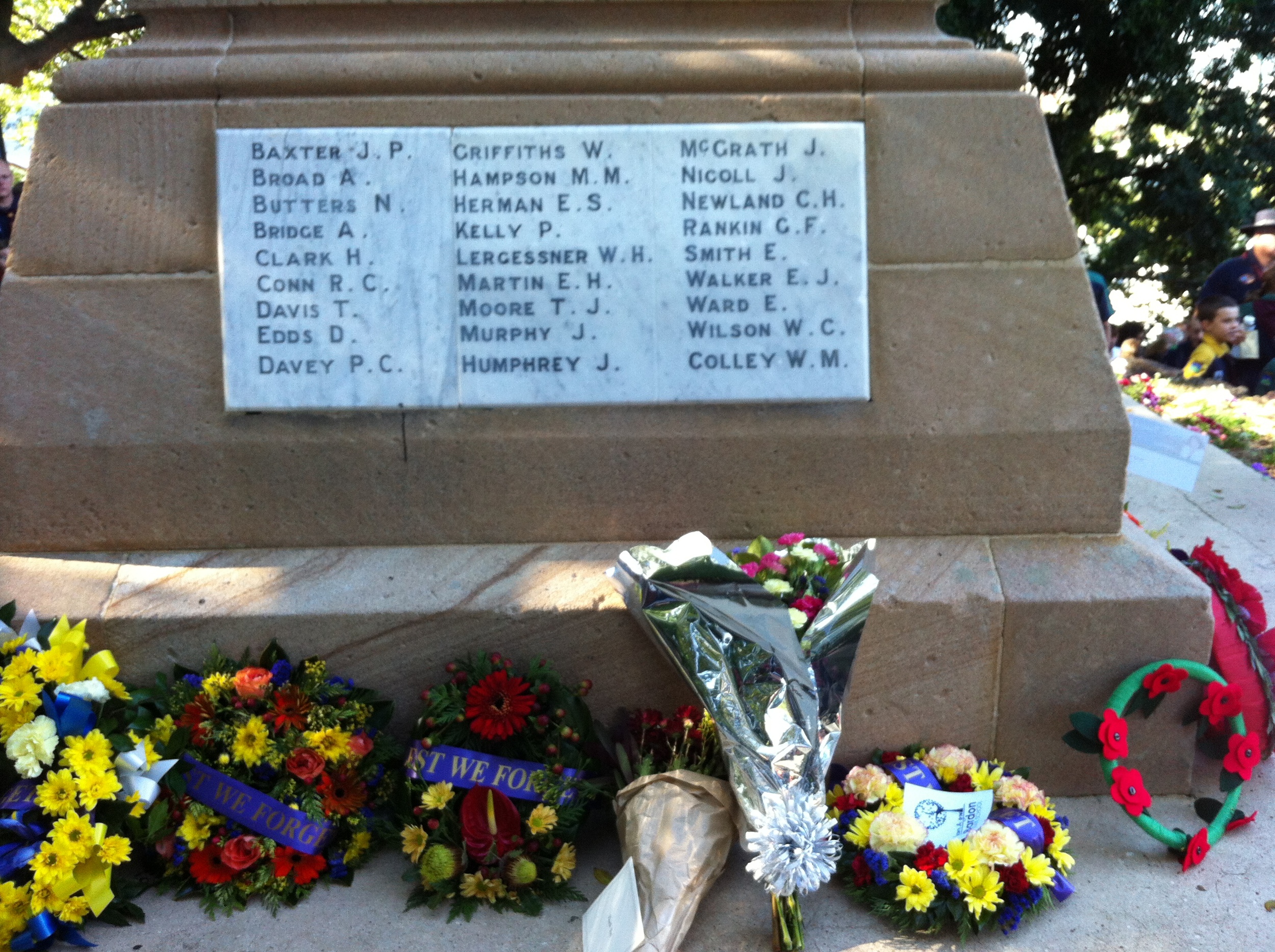Lest we forget they were boys
/Every year on Anzac Day, we go to the Ithaca War Memorial at Paddington for the morning service. The start time is often reported wrongly and so we mostly go half an hour early rather than half an hour late and manage to catch the procession from the Presbyterian Church on Enoggera Terrace. The local scouts are there, the Boys’ Brigade, a piper from one of the big schools, and a choir of primary school children, none of them older than 12.
For the service, there’s a small company of soldiers who stand, heads bowed, one on each corner of the memorial, while speakers from the government and the RSL struggle to put human experience of horror and loss in a context that primary school children will understand. The soldiers look solemn and sure in their polished black boots, their modern guns across their chests. But they’re just boys, you’ll notice when they look up after The Last Post, older than 12 but not by much in the scheme of things.
I’m focusing on that age of 12 because my son turns 12 this year. Many of the boys and girls in his class are 12 already. And 12 happens to be the age of the youngest British soldier known to have served in World War I. He was one of hundreds of boy soldiers who fought in World War I, from Britain and from Australia, whose youngest enlisted soldier was 14. When I look at my son, I cannot believe a 12-year-old soldier ever existed. But he did.
The Ithaca memorial was built in 1922, just over three years after the war ended, with money raised in the community, when Ithaca was still a separate town from Brisbane. More than half of the young men who went to war from the town suffered casualties, and there are 103 names on the memorial of those who died. You can find the soldiers’ records on the Australian War Memorial website. You see the name and age and where they were from in your neighbourhood. On Anzac day, I always think of their mothers, who would have attended the service in 1922 when the memorial was unveiled. I imagine they stood there and wondered what had happened to their sons, the places they’d taken their final breaths, whether they’d been frightened and alone or long suffering. I can’t imagine being one of those mothers. I couldn’t do it.
The monument at Ithaca is on a lovely gentle slope off a ridge that looks across Brisbane city, shaded by a pair of figs. Before Anzac day, gardeners from the Brisbane City Council plant flowers and trim back the rosemary, which grows wild and spindly for the remainder of the year. Rosemary for remembrance, because the bitter herb, which grew wild on the slopes above Gallipoli, aids memory. Helps us remember.
I appreciate the work the gardeners do to have the memorial looking cared for on Anzac day, but I think my favourite time of year to visit is on those winter mornings that will be with us soon, the ones about which my Canadian friends laugh when we tell them it’s chilly. The sky is that blue you don’t see anywhere else in the world, a hopeful blue, and the air is crisp and clean. The last thing that could be possible is that all the young men in your neighbourhood could have gone away, many of them never to return.
It’s easier to remember something awful if there’s hope. World War I started a hundred years ago this year. We in Ithaca are just one of the dozens of communities who’ll come together to remember a war that no longer has living memory, and to remember all of the wars that have followed. Queensland’s Home Secretary Ned Hanlon, who grew up and lived and worked in Ithaca his whole life, served in World War I. At the 1933 Ithaca service, where Hanlon was the Local Member, and just six years before Australia went back to war, Hanlon said that we don’t come together on Anzac day in order to glorify war. “The hope is to make war impossible,” he said. We continue to hope.
Based on the column published in The Courier-Mail Qweekend on 19 April 2014. I write mainly about writing, education, birth, health and the thrill of parenting. You can Get in touch, tick the box to receive emails, Like Writer Mary-Rose MacColl on Facebook or follow MaryRoseMacColl on Twitter. Have a great day!


